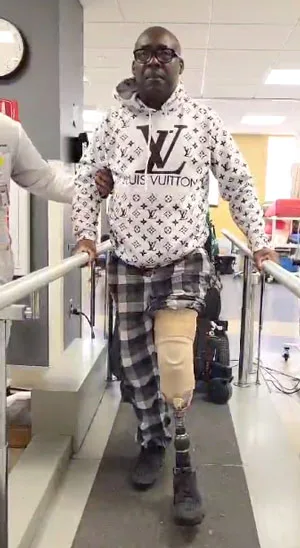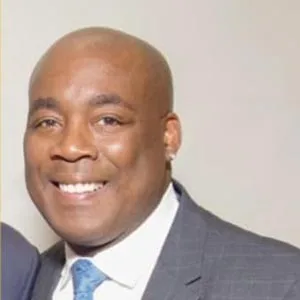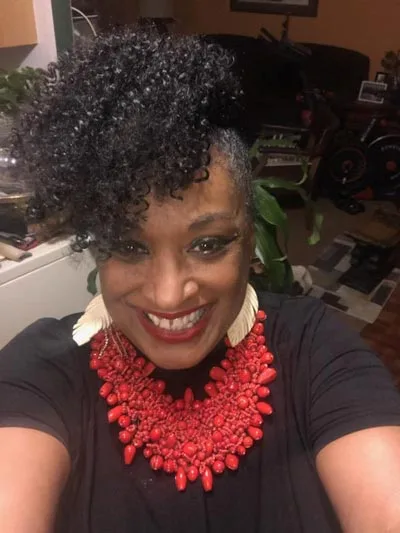BY NAYABA ARINDE
OTP Editor-at-Large
Black history health is coming into focus this Black History Month.
At the same time, Black History Month has to be more than just the Black universal power of constantly overcoming trauma. All the heroes noted by the mainstream are those who strove to go through, over, or under historic mainstream-imposed obstacles. We celebrate unsung Black excellence, too.
At the same time, reality is real, and health, access to insurance, affordability of medicine, and accessible help are on top of mind for millions.
This month , we also acknowledge super doctors, nurses, and subjects such as: ‘Father of the Blood Bank’s Dr. Charles Drew; nurse Harriet Tubman; Tuskegee, Alabama-born neuroscientist Dr. Keith Black; and Rebecca Crumpler, MD, the nation’s first Black female doctor. Despite delving back into trauma, also commemorated are women who were used or suffered for medical experimentation, such as cancer-diagnosed Henrietta Lacks – whose HeLa cells were harvested from her blood, and used for research and diabolical treatments, and may have saved up to a reported 10 million lives.
Then, of course, there is the 1932 – 1972 infection of 400 Black men deliberately infected with syphilis by government agencies; the 19th century publicly exploited, victimized, and abused Khoi Khoi-born Sarah Baartman; and widely reported that determining that Black women don’t feel pain like white women, Dr. J. Marion Sims operated on enslaved women without anesthesia on victims such as Anarcha, Betsey, and Lucy.
February is also heart health month. The chronic illnesses affecting the Black community are numerous and well-documented. They include heart disease, hypertension, diabetes, and asthma.

Harriet A. Washington’s celebrated tome ‘Medical Apartheid’ looks into what the title suggests. Tackling just one: the number of Black people diagnosed with Type 1 and Type 2 diabetes is on the rise. Equally disturbing is the number of amputations occurring. With that comes patients questioning whether or not the surgery was necessary.
Bedford-Stuyvesant resident Joan Williams told Our Time Press, “My brother had an infection in his foot. They said they were going to amputate it and then said that the infection had spread, and now they needed to cut off his leg below the knee. But now he is wondering if there was no other option. They love to cut us.”
The Centers for Disease Control – CDC recently reported that 2019–2021 figures of US adults 18 or older have 12.1 percent of Black people in the nation diagnosed with diabetes.
About 38 million Americans have diabetes, according to the CDC, with about 90-95% of them having type 2 diabetes.
“African and Caribbean Americans are at a higher risk than their white counterparts of heart disease, asthma, cancer, HIV and AIDS, and hypertension, and all of these anxieties,” warns health advocate Enid Knight, Diabetes and Chronic Pain Manager at the Fort Greene Brooklyn Plaza Medical Center.
Why is that? In a recent interview with Our Time Press, Ms. Knight suggested stress as a common factor, adding, “We’re (also) worried about our finances. Are you living above your means? Are you living within your means? You can build your wealth and your health at the same time.
“People are saying, ‘I’ve gotta make this dollar,’ but you have a health condition that you’re not even considering. People might say, ‘I’ve been diagnosed with COPD.’ But you’re smoking. Does that make sense?
Ethnicity-wise we are at the highest death rate. “These are what I call preventable deaths, and preventable health conditions,” she said. “Do we spend time to find out what diabetes is?” She asked. “‘My uncle had it. And your uncle died of diabetes [complications]’?” Or “‘My aunt had diabetes and her leg was cut off.’”

District Leader, 68th Assembly
District.
So why was that happening when diabetes is a manageable disease? ‘Aunty didn’t take her medication. She didn’t change her diet.’ Or ‘She was from the Caribbean, or the South, and she continued to eat like she wanted to. She made no changes.’
Ms. Knight told Our Time Press, “We have to make changes. High blood pressure is a big thing for African Americans. And (we) should monitor. Are you checking your pressure? Are you taking your medicine? Are you taking it correctly? You have six or seven medicines, but you’re only taking two? African Americans aged 18 to 49 are two times more likely to die from heart disease than other Americans.”
What about access?
“Under the Affordable Care Act, why aren’t we going to the doctor? This excessive cardiac distress in our population is because people are not going to their referrals but will go get that liposuction or that breast reduction. But we have hypertension, but we are not looking at what those factors can do to us significantly.”
Keith Lilly, the popular former Harlem District Leader, 68th Assembly District, told Our Time Press that last July his lower left leg was amputated after 10 years of living with diabetes.
It all started, he said, with a small hole in his foot, which he did not feel because of his neuropathy. “I didn’t know where the hole came from, but I didn’t think anything of it. I cleaned it out, put a band-aid on, and a few days passed, and the hole started to get larger.”
A week later, he went to the hospital as the wound was not healing, “and my toes were swollen. So I went, they gave me antibiotics, and sent me home. But the hole got larger. But I had no symptoms of a fever, so I didn’t know I had an infection. There was no numbness, no pain, just swelling and the hole getting larger.”

But then Mr. Lily said he began losing balance. “I was finding it difficult to walk. I went back and that’s when they kept me and told me that I had an infection. I was in Mount Sinai. They cut a couple of toes off, to [stop] the infection from creeping up. Their claim was, ‘We think we are going to have to cut further because we don’t want the infection to get further up the leg.”
Then Mr. Lilly said medics returned and said that they would have to take his left foot.
“I was skeptical and asked for a second opinion. But it was from the same people in the cardiovascular department that came, and they said the same thing the other doctors were saying. ‘If you want to save your life, we believe that we should cut below the knee or the entire foot, as opposed to half the foot.’, We went back and forth. Finally, I agreed for them to take half the foot, under the assumption that they were saving me from the infection going further up my body.”
Mr. Lilly’s leg was cut from the knee down. Our Time Press reached out to Mount Sinai but did not get a response by press time.
Mr. Lilly has been in rehab since July 2023, and is learning to walk with a new prosthesis, and uses a wheelchair and scooter.
With reference to people only responding to medical challenges when the issue becomes chronic, Mr. Lilly said. “That’s very true. You just don’t know. It’s really scary too, because you could be going through a series of things in your body, but, until something painful happens like neuropathy or your hands are tingling with pain, you react off of that. But. If none of that is happening it doesn’t suggest that your AIC is not high, because mine was over 12.”
He was eating sweets, he said, but lots of pasta and rice. “People don’t realize that if you don’t eat cake, or cookies, or candy that you’re [still not] alright. But a lot of it is the rice, the bread – all that turns into sugar.”
The 57-year-old father of one daughter, advised anyone with high blood pressure to, “Bring it down, because to have high levels is extremely dangerous. Check your AIC as much as possible to check that it is at normal levels. I brought mine down to under 6,” being in rehab.
“I’m not eating the way I ate. I eat smaller portions. Don’t drink sodas, or juice. I’m taking insulin.
As he shows appreciation for a GoFundme which is helping him raise monies to adapt to his new life with a prosthesis, eternal activist Mr. Lilly told Our TimePress, “I am realizing that so many community stores are not handicapped-accessible. I want to advocate for diabetics, and the handicapped on an array of issues.”
“Black health is at stake on all levels, whether it’s Black wealth, Black physical health, Black mental health, Black financial health – all of this affects our overall Black health,” said Enid Knight.

